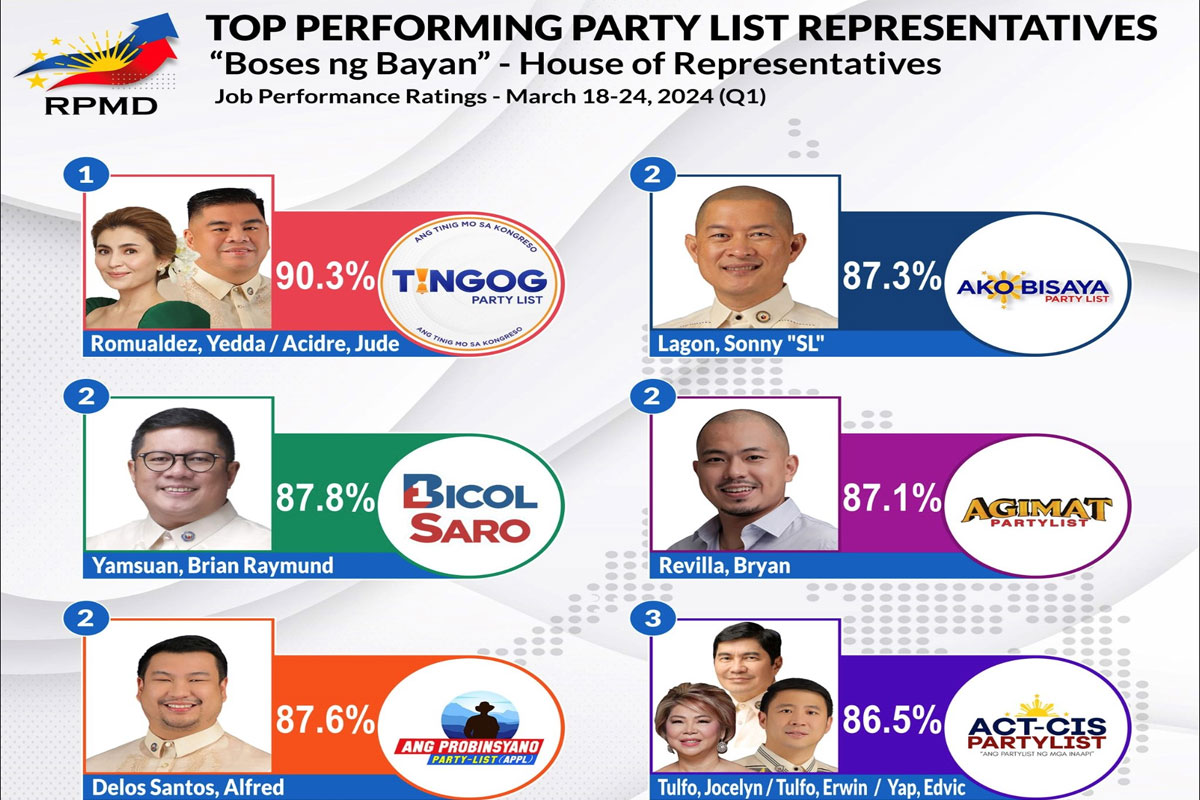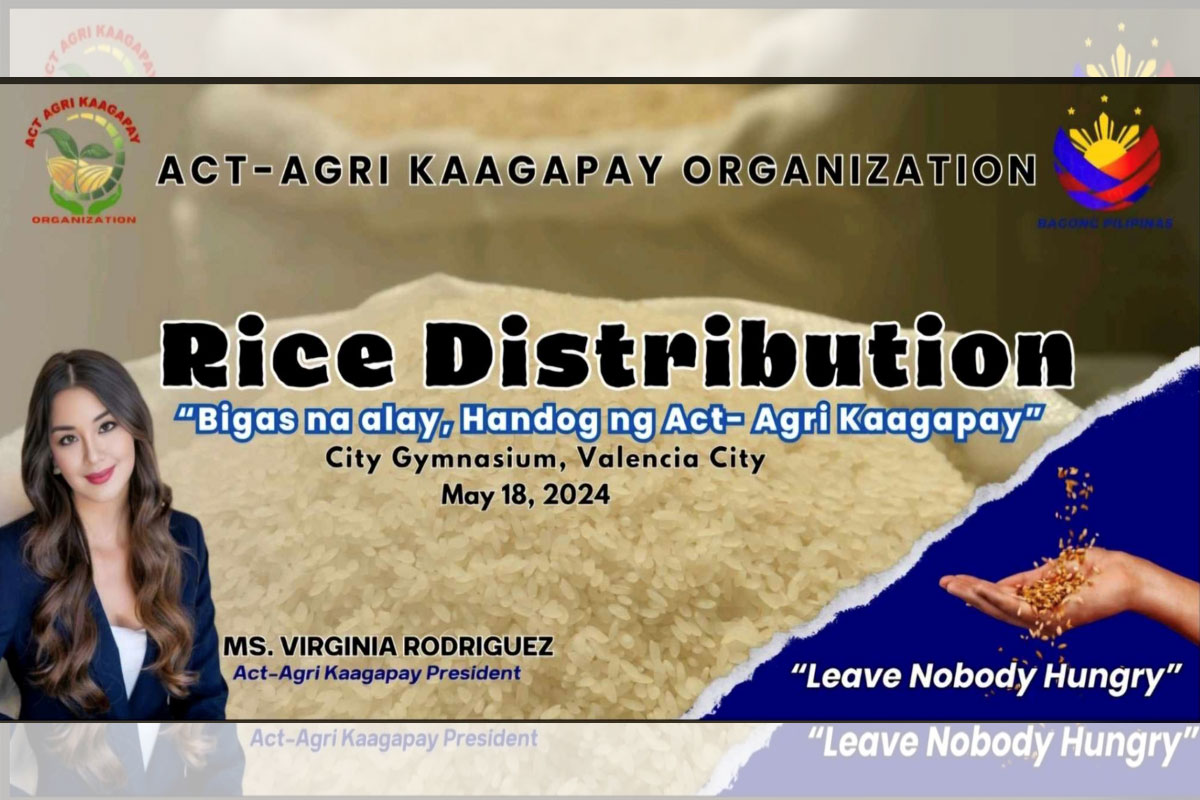 Source: Department of Agriculture
Source: Department of Agriculture
Solons laud enactment of PH Salt Industry Dev’t Act
KABAYAN Partylist Rep. Ron P. Salo and AGRI Partylist Rep. Wilbert T. Lee on Saturday lauded the enactment of the Philippine Salt Industry Development Act that he principally authored, which aim to revitalize the salt industry and address the need for employment in rural areas.
“This landmark legislation is a significant step towards empowering our salt farmers and revitalizing an industry that holds immense potential for our nation’s economic growth,” remarked Salo, one of the principal authors of the Philippine Salt Industry Development Act.
According to Lee, the revival of the salt industry will generate thousands of new jobs, particularly in the countryside and coastal communities.
“Bukod sa libo-libong trabaho na bagong malilikha ng batas na ito, madadagdagan din ang kita ng ating mga salt farmers. Our work does not end with the signing of this measure into law. We need to ensure its proper and effective implementation,” the solon said.
“Through this landmark legislation, aside from encouraging investments and increasing local salt production through the expansion of existing and idle salt farms, we will also boost capacity building for salt farmers and strengthen market linkages,” he added.
Republic Act No. 11985 stipulates the crafting of the Salt Roadmap, which shall contain comprehensive programs, projects, and interventions aimed at the development, management, utilization, processing, and business modernization of the salt industry, with the ultimate goal of sustainable production leading to salt exportation.
Additionally, the act establishes a Salt Council tasked with accelerating the modernization and industrialization of the salt industry, while ensuring the effective implementation and monitoring of the Salt Roadmap.
Furthermore, salt is designated as a priority commodity under the act, exempting it from certain taxes and identifying specific provinces as priority areas for salt production.
Crucially, the act exempts certain salt from mandatory iodization, specifically artisanal salt, non-food grade salt, and salt intended for exportation. It is clarified that domestically-produced food-grade salt will still require iodization, but farmers or producers are not responsible for iodizing salt intended for food consumption. In order to support the creative industries, artisanal salt used in food establishments and by food manufacturers will be exempt from iodization requirements.
“This legislation will not only create jobs in the salt industry but also ensure fair opportunities for our salt farmers,” emphasized Salo.
“I am grateful to President Ferdinand Bongbong Marcos, Speaker Ferdinand Romualdez, Senator Cynthia Villar, Cong. Mark Enverga, Cong. Wilbert Lee, and all other champions who lent their support to this crucial legislation,” added Salo.
To ensure that the vision and objective of the law will be fully realized, Salo has been in constant coordination with the Bureau of Fisheries and Acquatic Resources, which is tasked to implement the law.
Salo emphasized the importance of ongoing vigilance, stating, “While the enactment of the Salt Industry Development Act is a cause for celebration, our work is far from over. We must remain vigilant in monitoring its implementation to ensure that it delivers tangible benefits to our salt farmers,” Salo concludes.
The Department of Agriculture (DA) shall also ensure that salt is a priority commodity to be produced locally in various areas and regions across the country. Through this measure, salt is classified as an aquatic resource product and shall be exempt from all taxes.
“Nagpapasalamat tayo kay President Bongbong Marcos, sa ating mga kasamahan sa Kongreso sa pangunguna ni House Speaker Martin Romualdez, Committee Chair Cong. Mark Enverga, at Cong. Ron Salo, pati na rin sa mga katuwang natin sa Senado, na kasama nating nagsulong para maisabatas ito,” Lee said.
“With proper monitoring and implementation, we can achieve our ultimate goal to be salt self-sufficient and become a net exporter of salt. We can now avoid having to import 500,000 metric tons of salt every year, or more than 90 percent of the country’s salt requirement,” he added.
Under this measure, the DA-National Fisheries Research and Development Institute (NFRDI), in close coordination with the Philippine Center for Postharvest Development and Mechanization (PhilMech), shall spearhead the development of the latest technology in salt production particularly technology that allows year-round production of salt even under erratic weather patterns. It shall also encourage the mechanization of salt production and develop technologies that promote alternative methods and cost-effective techniques in salt production.
“Winner tayong lahat sa batas na ito na poprotekta sa kabuhayan ng marami nating kababayan, magpapagaan sa pasanin ng local salt producers at consumers, at makakabawas sa pangamba nila na wala silang pantustos sa ibang pangangailangan, tulad ng pagpapagamot kapag nagkasakit,” he added.

















